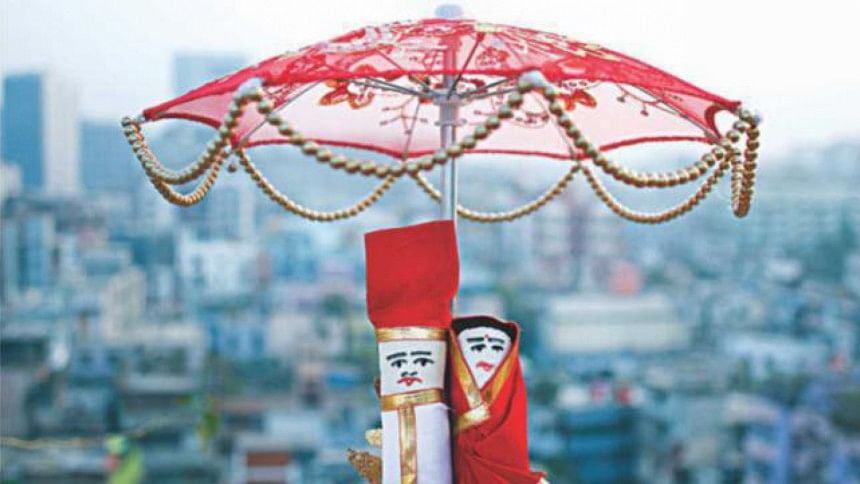The ghost of ‘special circumstance’ provision

Recently on 27 February 2017, the National Parliament of Bangladesh has newly enacted the Child Marriage Restraint Act 2017 repealing the Child Marriage Restraint Act of 1929. Under both of the Acts, child marriage is a punishable criminal offence. However, the new Act contains a special provision that allows a boy or a girl to get married before reaching the statutory age limit in some exceptional cases. The statutory age limit in case of male is 21 and 18 for female.
Section 19 of the 2017 Act provides that child marriage can take place with the consent of the parents and by the order of the court under ‘special circumstances’. It is a matter of concern that the ‘special circumstances’ have not been specified in the law. For explaining the ‘special circumstances’, the Prime Minister said, “We’ve fixed the minimum age for girls to marry at 18. But what if any of them becomes pregnant at 12-13 or 14-15 and abortion can’t be done? What will happen to the baby? Will society accept it?” (The Daily Observer, 28 February 2017).
However, we think that marrying off an underage girl child under ‘special circumstances’ could amount to violation of her human rights. Undoubtedly, she would become a victim twice. At first she gets raped by someone. As a consequence, she becomes pregnant. Then without her consent her parents or guardian arranges her marriage with the person who has raped her. This type of reality is not new in our Bangladeshi society. The thing is that the Parliament has now legalised it. This ‘special circumstances’ provision can be misinterpreted and an issue of endangering girl’s dignity and rights.
This provision is contradictory to the government’s commitment towards international community. According to article 16 of the Universal Declaration of Human Rights (UDHR), marriages are to be entered into “only with the free and full consent of the intending spouses”. In addition to this, General Comment No. 31 of the Committee on the Elimination of Discrimination against Women (CEDAW) and General Comment No. 18 of the Committee on the Rights of the Child (CRC) observe that “A child marriage is considered as a form of forced marriage given that one or both parties have not expressed their full, free and informed consent.” The CRC, on the other hand, obliges the States parties to “take all effective and appropriate measures with a view to abolishing traditional practices prejudicial to the health of children.” Bangladesh also has commitment to the Global Girl Summit-2014 to end child marriage by 2041 and reducing the number of girls marrying off between the ages of 15 and 18 by one-third by 2021.
For these reasons, child marriage under ‘special circumstances’ is a matter of girl’s self-dignity and contradicts the government’s commitment towards international community. We hope that the government will reconsider the ‘special circumstance’ provision for the best interest of our girl children.
The writer is an Assistant Professor of Law, University of Asia Pacific.

 For all latest news, follow The Daily Star's Google News channel.
For all latest news, follow The Daily Star's Google News channel. 



Comments